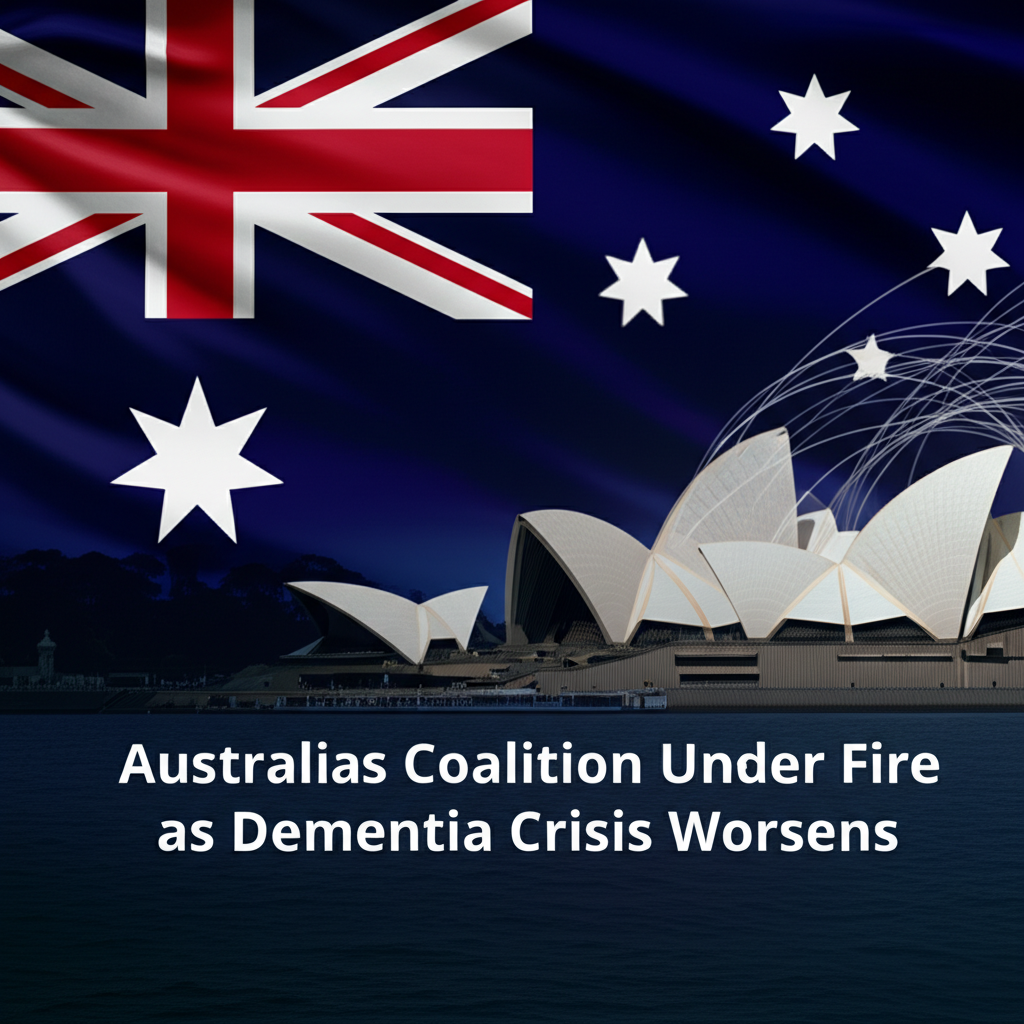Australia's Coalition Under Fire as Dementia Crisis Worsens

Australia's Coalition government is facing a growing storm of criticism over its handling of the escalating dementia crisis.
Background
Advocates, medical professionals, and opposition parties are all voicing concerns about inadequate funding, insufficient support services, and a lack of a cohesive national strategy to address the burgeoning problem
The rising tide of dementia cases, fueled by an aging population, is placing immense strain on the healthcare system, families, and the economy.
The number of Australians living with dementia is projected to skyrocket in the coming decades
Currently, it's estimated that hundreds of thousands are affected, a figure expected to double by mid-century.
This demographic shift presents a significant challenge for policymakers, requiring a multi-faceted approach encompassing prevention, early diagnosis, treatment, and long-term care
However, critics argue that the Coalition's response has been slow and insufficient, failing to keep pace with the growing need. One of the primary criticisms revolves around funding.
While the government has announced some targeted initiatives, many argue that the overall investment in dementia research, care, and support is inadequate. Specifically, concerns are raised about the lack of funding for community-based programs that provide vital support to families and caregivers, who often bear the brunt of the emotional and financial burden of caring for a loved one with dementia.
The current funding levels are simply unsustainable," says Dr. Eleanor Vance, a leading dementia researcher.
We need a significant injection of funds to develop effective treatments, improve care services, and support the families who are struggling to cope. " Furthermore, the opposition party has accused the Coalition of lacking a comprehensive national dementia strategy.
They argue that the government's piecemeal approach has resulted in fragmented services, inconsistencies in care, and a lack of coordination between different levels of government and healthcare providers
A national strategy, they contend, is essential to ensure that all Australians have access to high-quality dementia care, regardless of where they live or their socioeconomic status
The lack of a unified approach also hinders research efforts, as data collection and sharing are often inconsistent and inefficient. information highlights the complex nature of dementia.
It encompasses a range of progressive cognitive disorders, including Alzheimer's disease, vascular dementia, and frontotemporal dementia.
These conditions progressively impair memory, thinking, behavior, and the ability to perform everyday tasks
There is currently no cure for dementia, but early diagnosis and intervention can help to manage symptoms, improve quality of life, and provide support to caregivers
The current implications of the deepening dementia crisis are far-reaching
The strain on the healthcare system is increasing, with hospitals and aged care facilities struggling to cope with the growing number of patients requiring specialized care
Families are facing immense emotional, financial, and practical challenges as they navigate the complexities of dementia care
The economy is also affected, as dementia-related healthcare costs continue to rise, and productivity is lost due to caregiver responsibilities.
The future outlook is bleak unless significant action is taken
Experts warn that without a substantial increase in funding, improved support services, and a comprehensive national strategy, the dementia crisis will only worsen
This will have devastating consequences for individuals, families, and the Australian society as a whole
The government's response in the coming months will be crucial in determining whether Australia can effectively address this growing challenge and provide adequate support to those affected by dementia
Recent surveys indicate a growing public awareness of the dementia crisis, with many Australians expressing concern about the lack of government action
This increased awareness may put further pressure on the Coalition to address the issue more effectively.
The upcoming budget is expected to be a key test of the government's commitment to tackling the dementia crisis
Failure to provide adequate funding and support could lead to further erosion of public trust and political repercussions.
